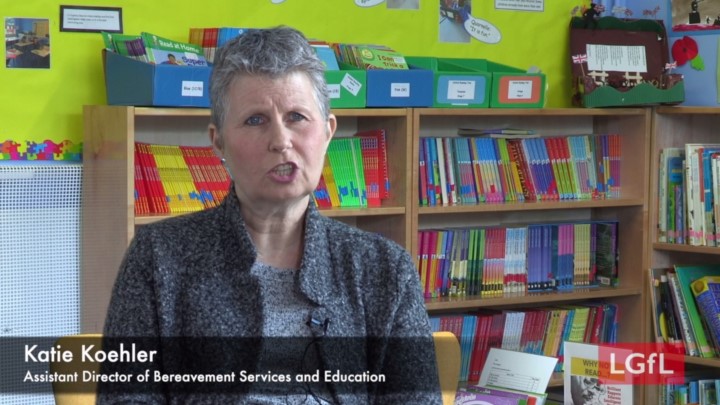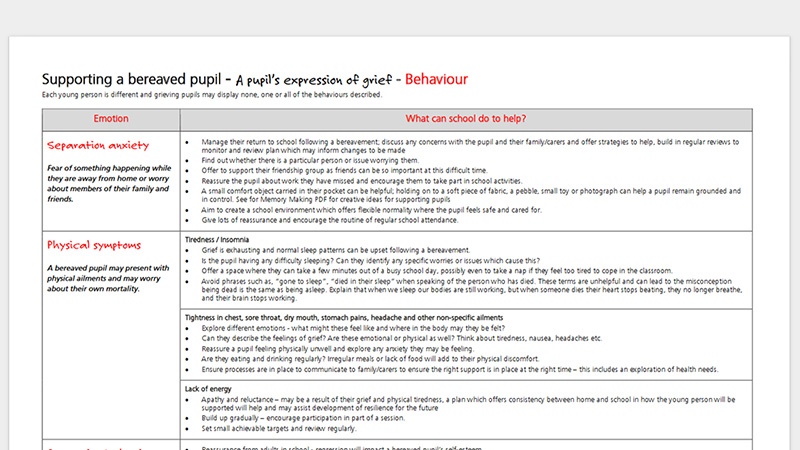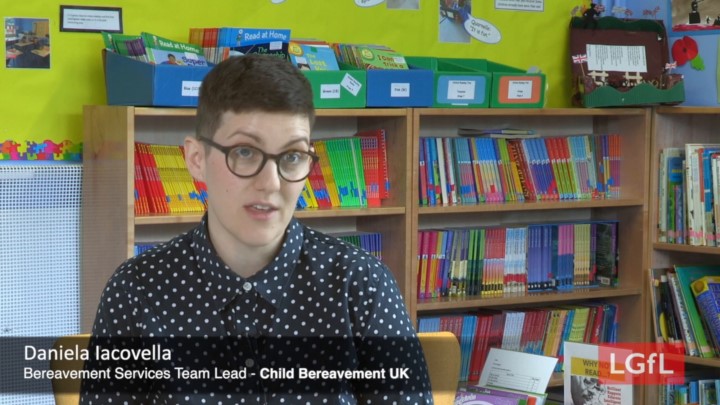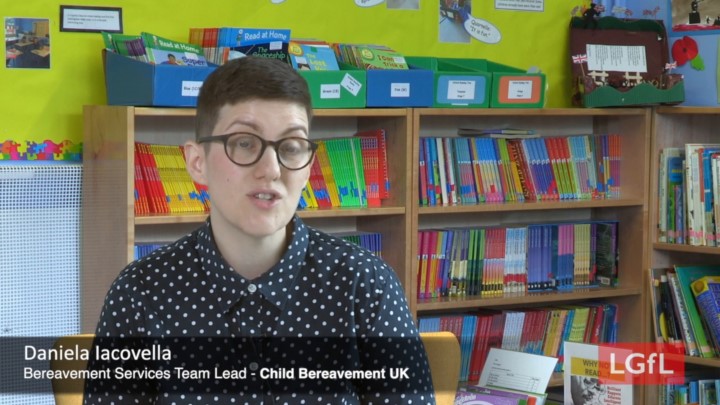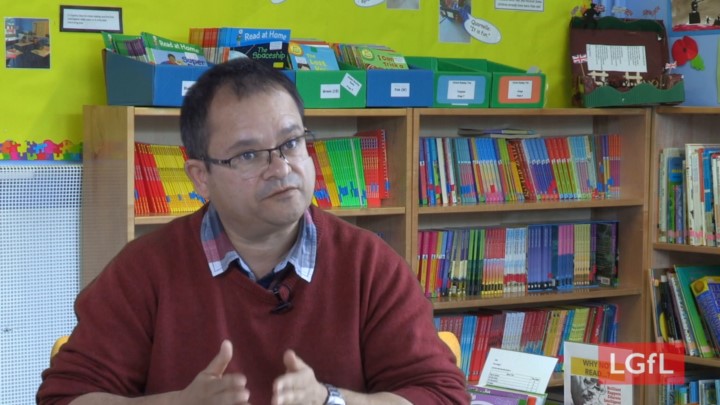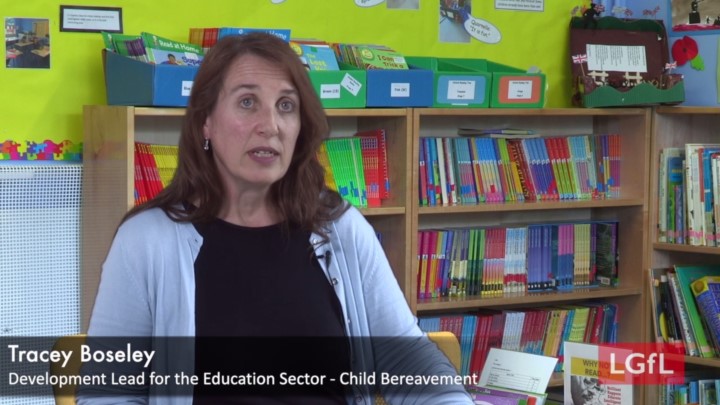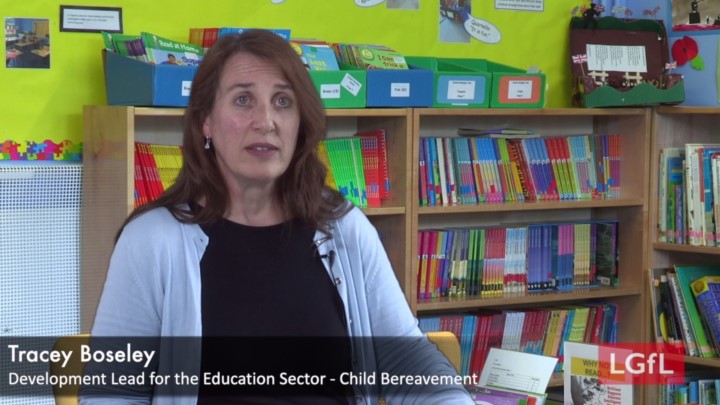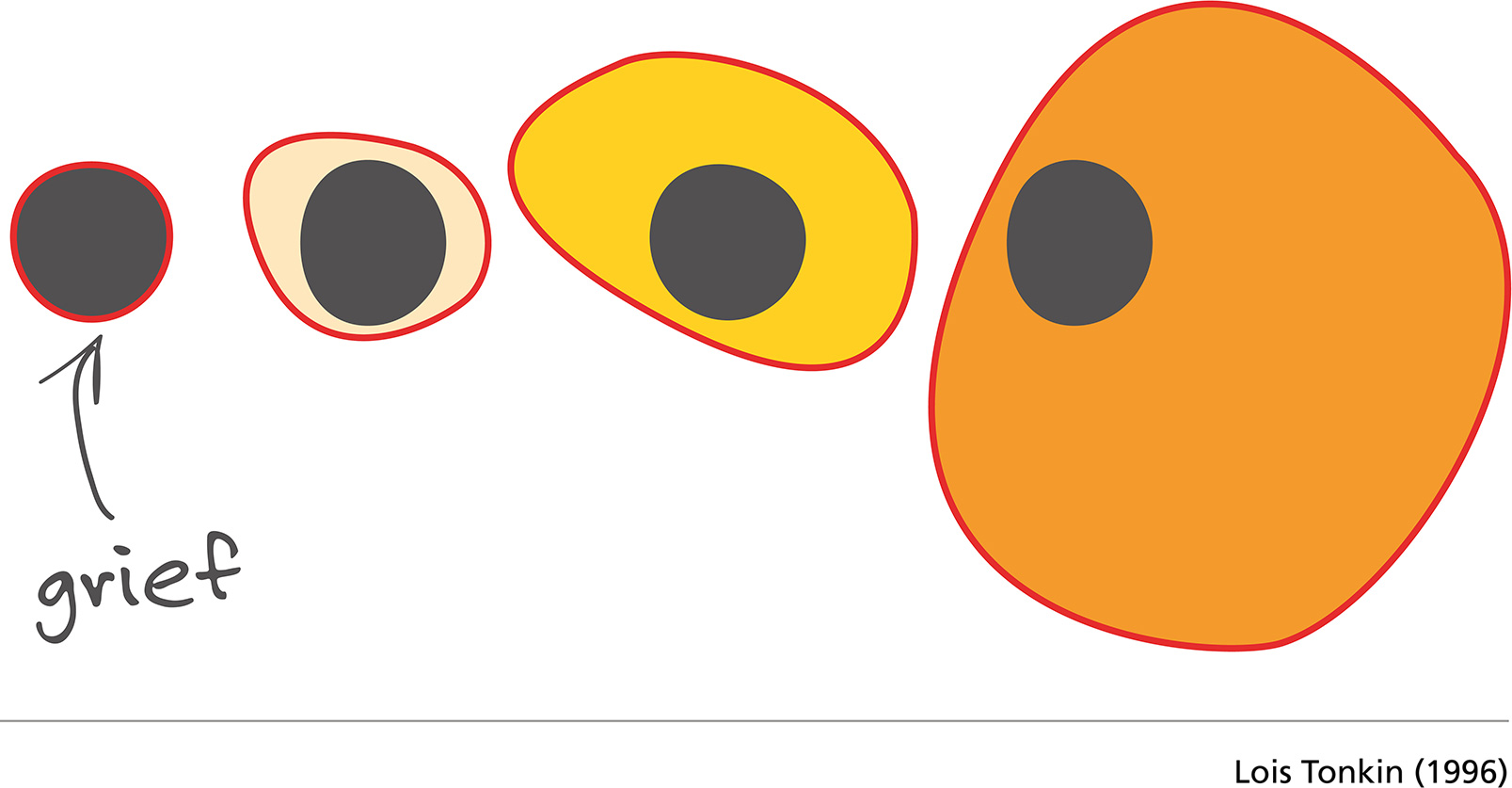Grieving behaviour
Click on each feeling/emotion on the list below to find out more…

Each young person is different and grieving pupils may display none, one or all of the behaviours described.
“It can be difficult to determine whether a child is just sad or whether they are perhaps depressed.”
Supporting Content

Why?
It is common for bereaved young people to worry about members of their family and friends after the death of someone important to them.
They may be reluctant to attend school fearing something may happen while they are away from home. It is also common for bereaved pupils to worry about other grieving members of the family and feel they should be with them.
Absences from school can increase their anxiety about returning.
What can school do to help?
- Offer to meet the pupil and their family/carers to discuss how they want to manage their return to school and address any concerns they have.
- A small comfort object carried in their pocket can be helpful; holding on to a soft piece of fabric, a pebble, small toy or photograph can help a pupil remain grounded and in control.
- School should be a place of flexible normality where the pupil feels safe and cared for.
- Give lots of reassurance and encourage the routine of regular school attendance.

Supporting Content

Tiredness
A bereaved pupil may have difficulty sleeping or have disturbed sleep patterns. Young people may also fear sleep, particularly if they associate sleeping with death. Grief is exhausting and normal sleep patterns can be upset following a bereavement.
What can school do to help?
- Find out whether the pupil is having any difficulty sleeping. Can they identify any specific worries or issues which cause this?
- Offer a space where they can take a few minutes out of a busy school day, possibly even to take a nap if they feel too tired to cope in the classroom.
- Avoid phrases such as, “gone to sleep” or “died in their sleep” which are unhelpful, and can lead to the misconception that being dead is the same as being asleep.
- It can help to explain that sleep is different to death and that when we sleep, our bodies are still working. When someone dies, their heart stops beating, they no longer breathe, and their brain is no longer working.
Tightness in chest or throat/dry mouth, stomach pains, headaches or nausea
Pupils may describe sore throats or pains in their chest, feeling sick or having stomach aches, headaches etc. They may worry about serious illnesses and their own mortality.
What can school do to help?
- Can the pupil identify where in the body they feel an emotion? Can they begin to link this to a physical symptom?
- Although it may be difficult, it is important to encourage a bereaved pupil to eat regularly as a lack of food will add to their physical discomfort.
- Reassure them when they are feeling unwell.
- Ensure processes are in place to communicate with family/carers to ensure the right support is in place at the right time – this includes an explanation of health needs.
Lack of energy
The usual ability to run around and join in sporting activities may be replaced with apathy and a reluctance to take part.
What can school do to help?
- Modify expectations and encourage participation.
- Set small achievable goals and review regularly.

Supporting Content

A grieving pupil may regress in their behaviour as they may be trying to recreate a time of security before the bereavement. Their handwriting, spelling or academic progress may also be affected.
What can school do to help?
- Reassurance from adults in school is important as the regression will impact a bereaved pupil’s self-esteem.
- Remind them of their strengths and help them to feel positive about their own abilities.
- Set small targets and celebrate their successes.
- Allow them to spend some time on areas of the curriculum they enjoy or excel at.

Bereaved pupils have lots of questions; as they grow older, they may need additional information. Some questions may be simple and easy to answer. Others may require a more detailed answer or information which may not be available to staff in school.
What can school do to help?
- Tell the truth while respecting the family’s wishes.
- Separate facts from beliefs and use the word “dead” rather than euphemisms which cause confusion.
- Tell a pupil if you do not know an answer and ask whether they would like you to find out.
- For difficult questions, ask the pupil what they think or what they have been told.
- Be honest about questions which cannot be answered.
- Good communication with the family/carers of a bereaved pupil will mean a consistent approach by home and school.

Supporting Content

In an attempt to take control of their own life, pupils may try out risk-taking behaviour. This is more common in older pupils as they struggle with the intensity of their feelings. A death out of the natural order of things can be viewed as a huge injustice and extremely unfair; parents, siblings and friends are not meant to die when young.
What can school do to help?
- Supportive peers and adults in school can offer alternative options for taking control and managing their emotions in a safe way.
- Allow a bereaved pupil to make their own choices, particularly with regard to their grief.
- Bereavement combined with the upheaval of youth has been described as a “double jeopardy”. A bereaved young person supported by Child Bereavement UK put it another way, expressing it as “grief with knobs on.”
- Young people’s moods and behaviours can be quite erratic, so it may be challenging to identify grief within ‘normal’ teenage behaviour.
- Talk to the young person directly to find out how they are managing their grief and signpost them to additional support, if required.
It can be difficult to differentiate between risk-taking which occurs as part of adolescence and that which occurs as part of the grief process.
“It’s almost challenging death, defying death..”
Supporting Content

A previously high-achiever may fall behind following a bereavement, this can add to their anxieties and concerns for the future. It may be difficult for them to study at home as they may have extra duties or responsibilities to deal with as well as their grief.
Other bereaved pupils may feel the need to strive for perfection. This can be in their studies, sport or other extra-curricular activity. This places a pupil under extreme pressure with unrealistic goals.
What can school do to help?
- Offer flexible deadlines for homework or a safe space to work in school, once they feel able to cope with the demands of the curriculum.
- Be aware of bereaved pupils setting themselves unrealistic or unachievable goals.
- Look out for signs of stress, as a bereaved pupil may have underlying feelings of guilt or a desire to ‘prove themselves’ to the person who died.

Supporting Content

A bereaved pupil may question the point of school when their world has been turned upside down. Their life may have lost its meaning or purpose.
What can school do to help?
- Help them to understand that while they may feel like this now, they will not always feel like this.
- Focus on their strengths and skills.
- Find out what they enjoy doing and offer this as an incentive or reward.
- Their life will be able to grow and develop, albeit a different life to the one prior to the bereavement – refer to Tonkin’s model.
- Try to establish longer term goals to help them focus on their future.

Supporting Content

If their home life has been turned upside down by a bereavement, a pupil may find it difficult to focus in school. They may be trying to take on adult responsibilities such as caring for grieving adults or looking after siblings. This can take its toll on the wellbeing of a young person.
What can school do to help?
- School can provide a secure environment away from the stresses of home. It may also be a place where a young person feels able to grieve.
- Offer a time and space for study to help a pupil who is struggling to keep up with their academic work, or if it is too difficult to complete studies at home.
- Signpost to support organisations, if necessary.

